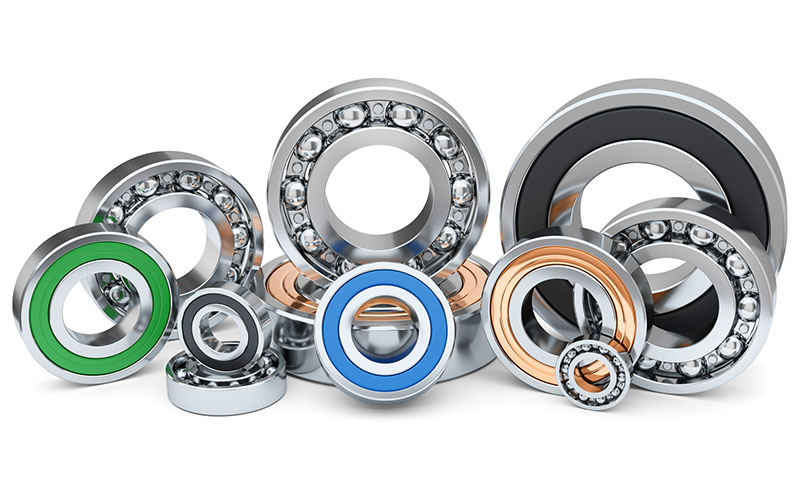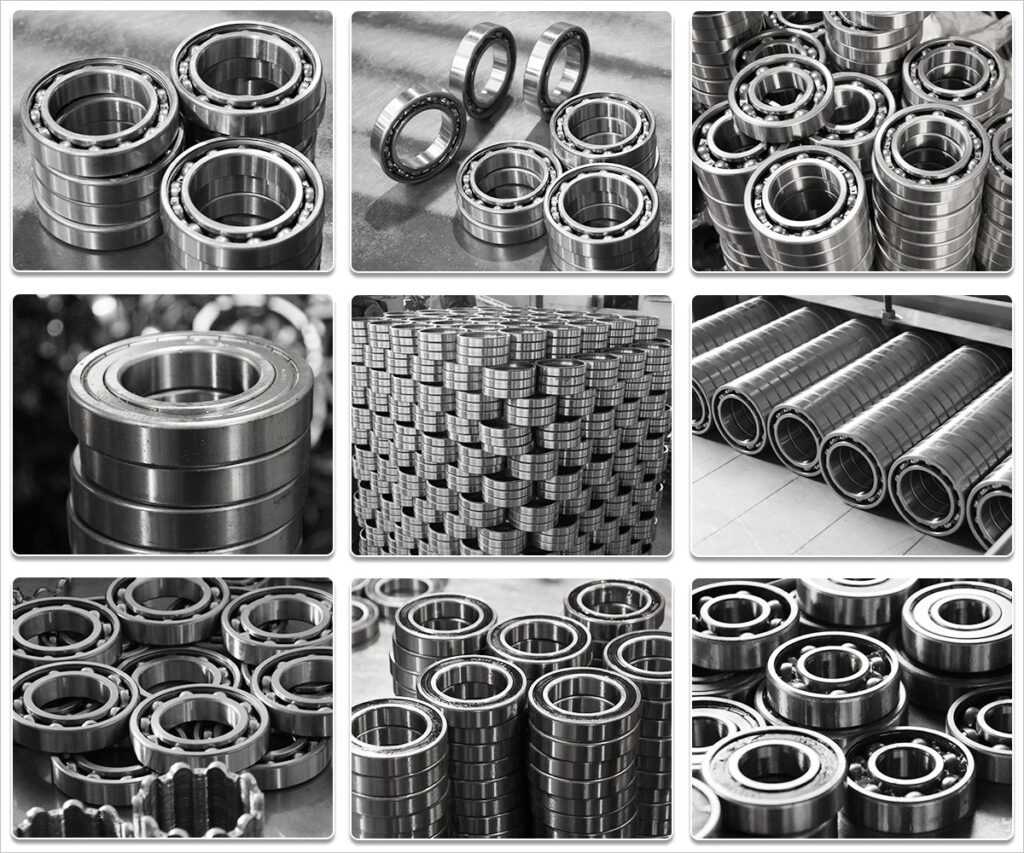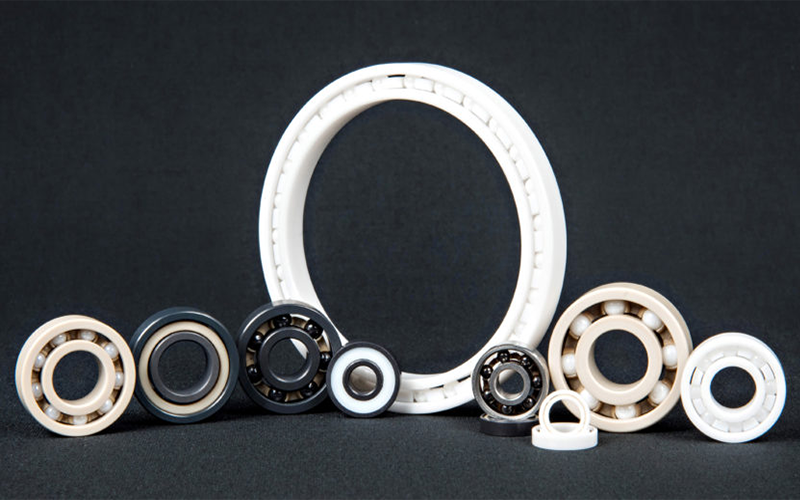Deep Groove Ball Bearing Materials: Choosing the Best for Your Application
Choosing the right material for deep groove ball bearings is important for their performance, lifespan, and overall efficiency. Different materials give bearings unique features like good wear resistance, great corrosion resistance, and strong load capacity. High-quality materials let bearings work well under heavy loads and high temperatures, while low-quality materials can cause early failure. Read this guide to gain comprehensive knowledge about deep groove ball bearing materials.

The Choice of Deep Groove Ball Bearing Materials is Very Important
How Materials Affect Bearing Performance
The type of material used in a bearing affects how well it works and how long it lasts. Good materials can keep working well even when there’s a lot of weight and heat. Poor materials might break fast. Knowing this helps people pick the right material that fits their needs by balancing good work with cost.
Key considerations in choosing the right material
The main point in picking the right material is to think about its fit, how long it lasts, its cost, and how it affects the environment. Things like temperature, humidity, chemicals, load capacity, speed needs, cost-effectiveness, and maintenance schedules should be looked at to make sure the material fits the equipment’s needs and keeps working well for a long time.
Common Materials for Deep Groove Ball Bearings
Carbon Steel: An Economical Choice
Carbon steel is often used because it’s cheap and easy to work with. It’s good enough when you don’t need top performance. But it doesn’t resist corrosion well, so you need to maintain and lubricate it regularly.
Stainless Steel: Corrosion Resistance
Stainless steel is great for wet and chemical-rich environments like food processing and medicine factories. It resists corrosion well, is strong, and can handle heavy loads.
Chromium Steel: Hardness and Wear Resistance
Chromium steel is hard and resistant to wear. It works well under heavy loads and high speeds. You can find it in industrial machines and cars.

High-Performance Materials for Deep Groove Ball Bearings
Ceramic Materials: Lightweight Design and High-Speed Applications
Ceramic materials are favoured in high-speed and precision applications due to their lightweight, heat resistance, and low friction, which reduce wear and noise, making them ideal for advanced industrial use.
Plastic Bearings: Self-Lubricating and Chemical Resistance
Plastic bearings are popular in the food industry and medical devices. They self-lubricate and resist chemicals. They work without oil and can handle high corrosion, which is needed in these areas.
Special Alloys: Extreme Conditions
In extreme conditions, special alloys like nickel-based materials offer stability and last long. They are ideal for the aerospace and petrochemical industries.

Material Selection Based on Specific Applications
High-Temperature Environments
For very high temperatures, materials need to stay stable and resist wear. Ceramic and special alloys are preferred because they keep their strength and hardness in high heat.
Food and Medical Industries
Following strict hygiene rules is important in these areas. Stainless steel and plastic bearings are good choices because they resist corrosion and are easy to clean.
Aerospace Industry
In aerospace, light weight and high strength are important. Ceramic materials are good because they are light and resist wear and heat well.
Future Trends in Deep Groove Ball Bearing Materials
Composite Materials
New composite materials are used more often. They mix different materials to work better and last longer.
Nanotechnology in Bearing Materials
Nanotechnology improves mechanical strength, wear resistance, and reduces friction. This offers possibilities for high-precision and long-lasting machinery.
Eco-Friendly and Sustainable Materials
With growing environmental awareness, sustainable materials and production methods are getting more important. They will likely dominate future developments in bearing materials.
How to Choose the Best Deep Groove Ball Bearing Material for Your Application
Evaluate Your Application Needs
Carefully check your application to make sure the material meets all requirements, including operating conditions, expected loads, speed, and environmental specifics.
Balance Performance and Cost
High-performance materials can be more expensive. Think about how important material performance is for your budget and specific needs.
Seek Professional Advice
Talking to a bearing engineer can help get suggestions that fit your specific needs, making sure your machine works best.
Conclusion: Carefully Selecting Deep Groove Ball Bearing Materials Ensures Performance and Durability
In summary, this article talks about different materials used in deep groove ball bearings. It looks at how picking the right material can greatly affect how well the bearing works and how long it lasts. When choosing bearing materials, think about what your application needs, look at how well the materials perform, and get expert advice to make the best choice. This helps improve how your device works and makes it last longer, ensuring reliable operation over time.
